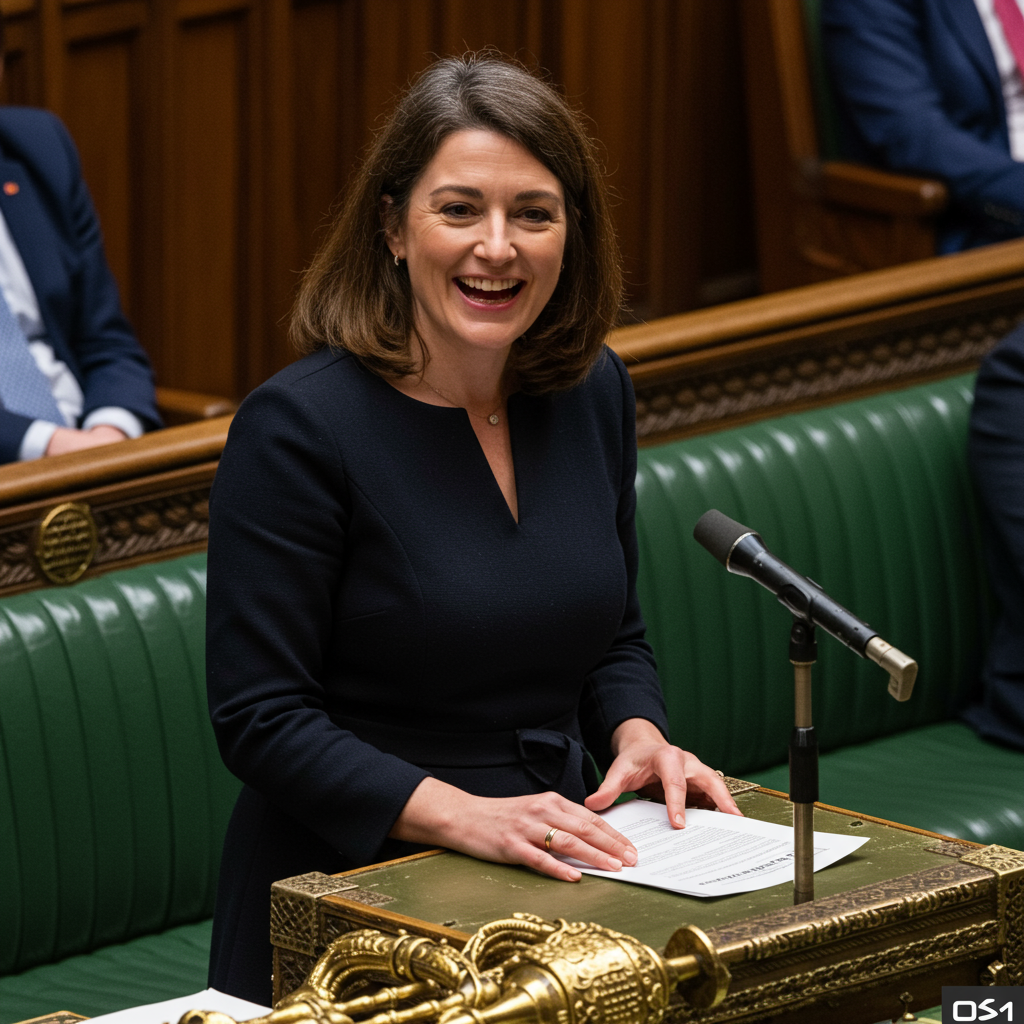A significant political showdown over welfare reform has seen Prime Minister Keir Starmer forced to make substantial concessions on proposed cuts to disability benefits. Facing the largest potential rebellion of his premiership, Starmer’s government backed down on key aspects of its controversial Universal Credit and Personal Independence Payment (PIP) Bill. This move, while allowing the bill to pass its initial hurdle in Parliament, has highlighted deep divisions within the Labour party and drawn heavy criticism from opposition and disability advocacy groups.
The government’s original plan aimed for major savings by reforming the welfare system. Initial targets suggested cutting up to £5 billion from the benefits bill by 2030. These changes specifically targeted Personal Independence Payment (PIP) and the health element of Universal Credit. The rationale presented was the need to curb rising spending on working-age health-related benefits. Projections showed these costs potentially increasing significantly if no action was taken.
Pressure Mounts on Starmer Over Benefit Reforms
Discontent had been brewing among a large faction of Labour Members of Parliament. Around 120 backbenchers initially signalled their opposition to the proposed reforms. Concerns centered on the potential impact on vulnerable individuals, particularly disabled people. Many MPs felt the changes amounted to balancing the national books “on the backs of disabled people.” This widespread dissent threatened to derail the bill entirely. Such a defeat would have been a major blow to Starmer’s authority, especially after a recent series of government U-turns.
Facing this substantial internal pressure, negotiations intensified between Downing Street and the rebel MPs. The Work and Pensions Secretary, Liz Kendall, led the government’s efforts to find a compromise. Rebel MPs, however, remained steadfast in their demands for significant alterations. Figures like Emma Lewell cited government impact assessments warning of potential poverty increases. Rachael Maskell described the initial proposals as “Dickensian.”
Key Concessions Secure Bill’s Passage (Just)
In a bid to avert a humiliating defeat, the government unveiled crucial concessions just before the bill’s vote. The most significant change was protecting all existing claimants. This means individuals currently receiving PIP and the health element of Universal Credit will not be reassessed under the planned stricter criteria. Their current entitlements are safe.
The proposed changes, including tougher eligibility rules, will now apply only to future claimants. Specifically, those making new claims for PIP after November 2026 will be assessed under the new system. Furthermore, a core reform aimed at changing the eligibility criteria for all new claimants was postponed. It will not proceed until after a separate review of the PIP system, led by Sir Stephen Timms, is completed. The government also committed to accelerating a £1 billion support plan, originally planned for 2029, bringing its implementation forward.
Despite these concessions, the bill’s passage through its second reading was not without significant drama. It passed with a majority of 75 votes (335 to 260). However, this came at the cost of the largest rebellion Starmer has faced. A total of 49 Labour MPs defied the government whip and voted against the legislation. Prominent rebels included figures like Diane Abbott and Rebecca Long Bailey, underscoring the depth of feeling on this issue across different wings of the party.
Critics Decry “Two-Tier” System and Cost-Cutting Focus
Even with the concessions, fierce criticism persists. A primary objection from rebel MPs and disability charities is the creation of a “two-tier” benefits system. Treating current and future claimants differently is seen as fundamentally unfair. Critics argue it creates inequity based purely on the timing of a claim, establishing an “unequal future” for disabled people.
Disability charities warn that the changes, even limited to future claimants, will have devastating effects. Scope estimates that 430,000 future disabled claimants could be negatively affected by 2029-30. An official impact assessment warned of 150,000 potentially pushed into poverty. Critics like Disability People Against Cuts (DPAC) express distrust, particularly for those with fluctuating health conditions who may lose their PIP and have to reapply under the harsher future rules.
Many MPs and charities argue the bill is primarily a cost-cutting exercise. The estimated £2.5 billion in savings, while reduced from the original £4.8 billion or £5 billion, is seen as the driving force. They contend it is not genuine reform focused on the needs of disabled individuals. Concerns also remain that the changes do not adequately address the complexities of managing fluctuating health conditions within the benefits system. Charities like Sue Ryder highlighted that the bill could even create “two-tiers of terminal illness” based on prognosis length.
Process Criticized as “Shambolic” and Lacking Consultation
Beyond the policy itself, the government’s handling of the bill drew sharp rebukes. MPs expressed frustration with the perceived lack of detail and insufficient consultation with disability groups. Rebel MPs described the process as “shambolic” and “salami sliced bit-by-bit.” Some felt the government attempted to “bounce” MPs into agreement. There was a widespread feeling that genuine co-production with those directly affected was lacking, leading some to call the outcome a “negotiated dog’s dinner.”
Politically, the row is damaging for Starmer. It represents the third significant U-turn in recent weeks, following decisions on winter fuel payments and a grooming gangs inquiry. This pattern is seen by some as undermining his authority. While the government insists it “listens,” the size of the rebellion suggests deep dissatisfaction remains. The financial implications of the concessions are also notable. The estimated cost, potentially up to £3 billion, creates a fiscal gap. Details on how this will be covered are expected in the autumn Budget. There are concerns it could necessitate tax increases or further spending cuts elsewhere.
Opposition parties seized on the division. Conservatives labelled it a “humiliating u-turn” and an “unfunded spending commitment.” They argued it failed to address the core issue of rising sickness benefit costs. The Liberal Democrats called for the entire bill to be scrapped and restarted with proper consultation. Despite securing the bill’s second reading, the government acknowledged there were “lessons to learn” from the process.
Frequently Asked Questions
What were the main changes proposed in Labour’s welfare bill?
The Labour government’s bill primarily proposed changes to Personal Independence Payment (PIP) and the health element of Universal Credit. The original goal was to achieve significant savings by reforming how eligibility for these benefits is assessed. This included requiring higher proof of need for daily tasks and other criteria, aiming to slow the rising cost of working-age health-related benefits.
Who is affected by the recent concessions on the welfare bill?
Following pressure and potential rebellion, the government made concessions. The planned stricter eligibility rules and cuts will now only apply to future claimants making new claims for PIP and the health element of Universal Credit from November 2026 onwards. Critically, all existing recipients of these benefits will be protected and will not be reassessed under the new criteria.
Why did Labour MPs rebel against the welfare reform bill?
A significant number of Labour MPs rebelled due to deep concerns about the bill’s impact, particularly on disabled people. Key objections included the creation of a “two-tier” system treating current and future claimants differently, the view that the bill was a cost-cutting exercise rather than genuine reform, and worries about hundreds of thousands of future claimants being pushed into poverty. Many also criticized the government’s process, citing a lack of consultation and transparency.
The passage of the bill marks a legislative step forward for the government, albeit one achieved through significant compromise. The concessions secured protection for existing claimants but failed to appease all critics. The focus now shifts to the bill’s further stages and the planned review, while the debate over the fairness and effectiveness of welfare support for disabled people continues to resonate within Parliament and across society. The political cost to Starmer’s leadership from this major internal battle remains a key factor.



